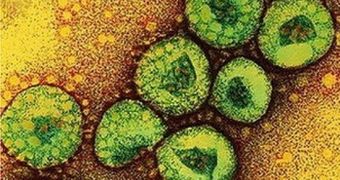Infections with the deadly MERS (Middle East Respiratory Syndrome) virus could be treated with a cocktail of licensed drugs that are already used to fight back other viral diseases, researchers writing in the journal Nature Medicine argue.
The drug cocktail these scientists claim might successfully treat MERS virus infections in humans is made up of interferon alpha-2b (IFN-2b, for short) and ribavirin.
Sources tell us that, up until now, a combination of these two drugs has mainly been used to treat hepatitis C. However, experiments carried out on rhesus monkeys indicate that the drugs could also prove successful against the MERS virus.
As previously reported, a rhesus monkey's immune system is not all that different from the human one.
Hence the fact that researchers are fairly confident in the drug cocktail's ability to treat said acute respiratory illness in human patients.
In order to test the drug combination's effectiveness against MERS, scientists at the National Institutes of Health infected six monkeys with the virus.
About eight hours after the MERS virus had been introduced in their bodies, they administered the drug cocktail to three of them.
The monkeys given the drugs did not develop any breathing difficulties. What's more, further tests showed that the virus did not thrive in their body and that the tissues that made up their lungs did not sustain any severe damage.
By comparison, the monkeys that did not receive this treatment all developed severe pneumonia, and had quite a lot of difficulties breathing.
The researchers theorize that, all things considered, the combination of interferon alpha-2b and ribavirin could help treat human patients shortly after they were infected with the MERS virus.
Still, attempting to use this drug cocktail to treat patients who have already developed severe respiratory problems might prove futile.
“IFN-2b and ribavirin treatment would be expected to provide the greatest benefit early in infection, the researchers reportedly write in their paper.
“It is currently unknown whether initiation of treatment upon progression to severe respiratory illness would have any benefit, a situation faced in many acute infectious diseases,” they add.
Since September 2012, when it was first discovered, the MERS virus has infected a total of 110 people. Of these, 52 have died.

 14 DAY TRIAL //
14 DAY TRIAL //